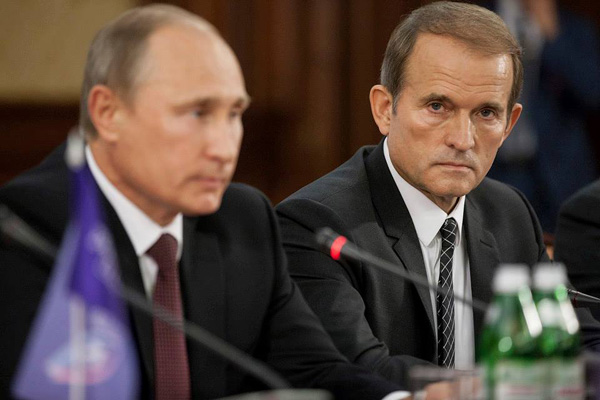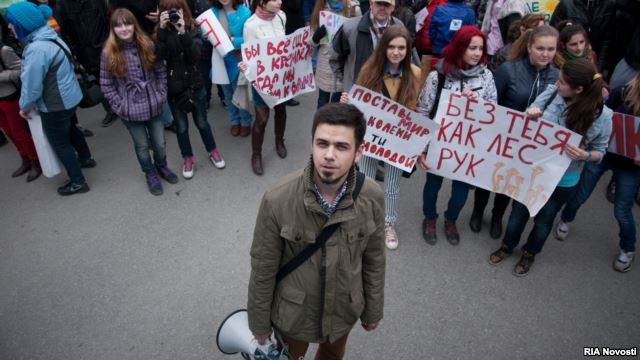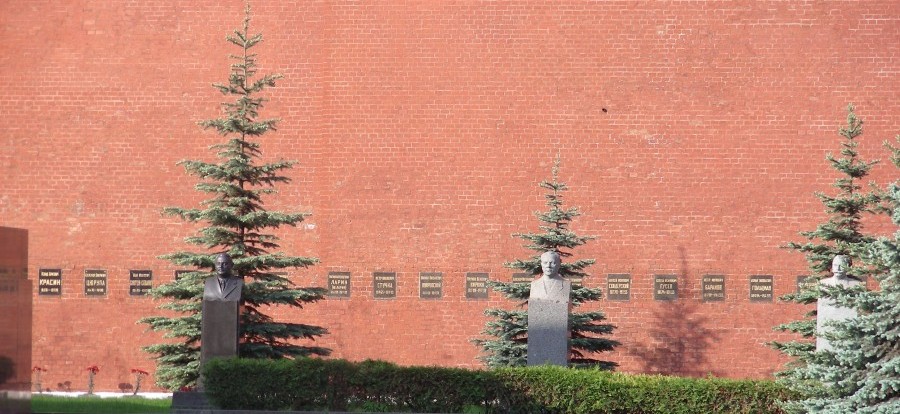The Ukrainian pro-Russian politician Medvedchuk told the Spanish magazine El Pais that, if the Minsk agreements cannot be fulfilled, perhaps it would be better for the "spirit" of the Minsk agreements and set up some kind of provisional government in Eastern Ukraine, acceptable to all parties. Any recalcitrant pro-Russian fighters could leave Donbas and head to Moscow.
Statements like this could be another indication that Putin's plans for Ukraine have gone off the rails, and he may be looking for some kind of way out of the war. Putin may even be considering ditching his current diplomatic strategy of using unreasonable interpretations of selected parts of the Minsk agreement to beat Ukraine into submission through pressure from European Allies. When Medvedchuk proposes something, the world ought to listen, as he is very closely associated with Putin. Putin is the godfather of Medvedchuk's daughter, and the wife of Russian PM Dimitry Medvedev is the godmother. There is no Ukrainian more connected to Russia's rulers. In March 2014 the US Treasury Department placed Medvechuk on a sanctions list, along with Yanukovych, for "undermining the government of Ukraine." Medvedchuk has since had his image slightly re-habilitated and has been working as a "special envoy" for Ukraine to negotiate prisoner exchanges in Minsk.
Medvedchuk is not a typical pro-Russian Ukrainian politician. Medvedchuk also recently made very critical statements against the "Opposition Bloc" - the pro-Russian party in the Ukrainian Parliament that is made up of the remains of the old "Party of the Regions" which was the party of the overthrown Ukrainian President Yanuovych. Medvedchuk railed against their failure to vote against the current Ukrainian PM:
"the faction using the opposition brand showed, with the exception of some MPs, that it remains the same Party of Regions. Not only have the remains of the "regionals" refused to bear responsibility for all the horror that is happening in the country as a result of their policy of mistakes and crimes, but also continue to act as an anti-national oligarchic power. Moreover, now they act in the interests of Washington, at the behest of the State Department and under "strict control" of the US Embassy....The Ukrainian Choice claims that, by supporting the Opposition bloc, you actually vote for the Party of Regions. If you expected from them anything other than treason, defending their selfish interests, their usual complaisance with the authorities and money, then you have learnt nothing from history."
So, on the one hand this Putin crony is proposing a new conciliatory "compromise" plan for the war in East Ukraine, and, on the other, he is railing against the pro-Russian party in the Ukrainian parliament and accusing the US Embassy of malignantly manipulating Ukrainian politics. Merely being corrupt and pro-Russian is no longer enough. If Russia was interested in eventually returning Ukraine to the fold, then the Opposition Bloc (that is, the Party of the Regions) would be its main vessel. However, these pro-Russian politicians, for all their many faults, demonstrated their unwillingness to destroy Ukraine when not a single one of them voted against the impeachment of Yanukovych after the shootings in Kiev. The party then formally expelled him and his Prime Minster Azarov.
Is Medvedchuk setting himself up to be the leader of a new, hard-core pro-Russian element within the Ukrainian government? Imagine this scenario: the Opposition Bloc as the old pro-Russian guard, Medvedchuk as the "official" pro-Russian political coordinator inside Ukraine, and the "rebels" in the East as the violent extremists who can continue to spread subversive propaganda, be riled up on command, and potentially even engage in further terrorism to clear the way for Medvedchuk's initiatives (chief among them being "federalization.")
A familiar pro-Russian Face
Medvedchuk is not a recent pro-Russian actor. In a leaked 2013 document said to be a Russian planning document about Ukraine, Medvedchuk is named as someone who could "play a key role" in consolidating pro-Russian forces in Ukraine trying to advance Russia's interests. The 10 page paper (full text in Russian here) titled "On the complex of measures to involve Ukraine in the Eurasian integration process" discusses various strategies for keeping Ukraine out of the EU and get Ukraine into the Eurasian Economic Union, the Russian-led economic bloc.
Now, years later after Maidan and the invasion of Ukraine, Medvedchuk still aspires to be a major political player in Ukraine, but the prospect of bringing Ukraine into the Eurasian Union is all but gone. A whole generation of Ukrainians have watched their friends and relatives get wounded and die in Donbas at the hands of the Russian military. Russia has permanently lost an ally, but Putin can still prevent Ukraine from joining the West. Putin may even want to make an example of Ukraine to show to Russians, Belarusians, Georgians, Kyrgyz, etc. exactly what happens when your country does not toe the Siloviki line. Medvedchuk can be the man to deliver Putin's punishment to Ukraine in the form of a frozen political process. The Russians may be losing their influence in Ukraine, but they can instead have a veto.
Medvedchuk has been proposed before as a "governor" of Eastern Ukraine. In June 2014 Medvedchuk was floated as a possible governor of Donetsk and Luhansk. The influential Ukrainian oligarch Ihor Kolomoisky said in a telephone interview from around that time: "Not only do I support Medvedchuk’s appointment as governor of Donetsk and Luhansk Oblasts, now I aggressively advocate for it. And if the separatist leaders will not approve his candidacy, this will mean that they ignore Vladimir Putin, the godfather of Medvedchuk’s child." Around the same time there were reports that Merkel had proposed Medvedchuk as a mediator, and that this proposal had been accepted by Putin and Poroshenko. This idea never panned out, but it may be about to re-surface, particularly if European diplomats grasp Medvedchuk's offer as a way of restoring the false promise of the Minsk agreements.
Stopping the Russian veto on Ukraine's future
Today European diplomats are pressuring Ukraine to "fulfill the Minsk agreements" while continuing to pretend that the battles of Debaltseve and Marinka never happened, and that the Russian army is not still in Ukraine. What Putin probably wants is to maintain this fiction for as long as possible. Medvedchuk can become an established hard-line pro-Russian force in Ukraine, the leadership of the DNRl and LNR can retreat back to Russia. Surely, their acolytes won't be idle, and just as the Russian-backed "terrorist group" the "Kharkiv Partisans" has claimed credit for attacks in Kharkiv while supposedly based in Russia, groups claiming the mantle of "Novorossiya" can occasionally conduct attacks in non-occupied Ukraine, and perhaps even maintain an "illegal" presence in Donbas (where they will, in fact, be unofficially supported.)
The main task for Ukraine and her allies should be to end the war, but not at any cost. Allowing the Russians to maintain veto power over Ukraine's future will not result in a neutral "Finlandized" Ukraine. As long as Putin or someone like him is in office, Ukraine's democratic evolution and continuing fight against corruption will be a threat to the core ideology of Russia's rulers, who insist that Russia (a country with a very similar history to and close cultural affinity with Ukraine) cannot develop into a Western democracy, and must be ruled by strongmen. An area of Eastern Ukraine that is at peace and ruled over by Medvedchuk or someone like him may be more attractive than the situation we have now, but it would not mark the end of Putin's attempts to destroy the legacy of the Maidan revolution.




